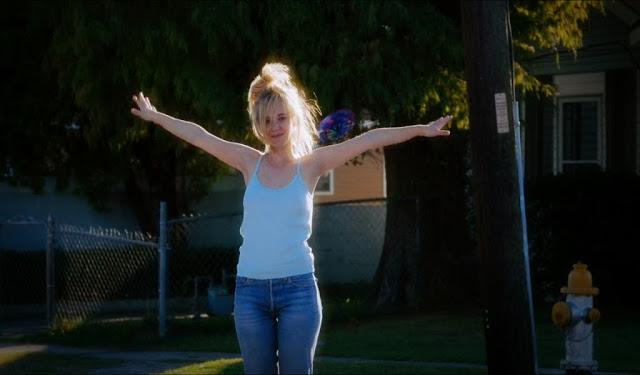Killer Joe (2011) 
“Murder never tasted so good.”

Director: William Friedkin
Cast: Matther McConaughey, Emile Hirsch, Juno temple
Synopsis: When a debt puts a young man’s life in danger, he turns to putting a hit out on his evil mother in order to collect the insurance.
There can’t be many more dysfunctional families than the Smiths from William Friedkin’s Killer Joe, an absorbing but uneven look at America’s dirty underbelly. Young Chris (Emile Hirsch) owes money he can’t pay to a local hood, his father Ansel (Thomas Haden Church) is frequently two steps behind everyone else, but is at least smart enough to know he’s too dumb to keep up, Ansel’s slutty wife Sharla (Gina Gershon) is cheating on him and isn’t beyond answering the door of their run-down trailer naked from the waist down, and young daughter Dottie (Juno Temple) has only a passing grasp on life’s realities. Although they’re dangerous in their stupidity, they also have about them the air of doomed creatures who will surely prove to be the instruments of their own destruction if left to their own devices.
Into their chaotic lives saunters the smoothly threatening figure of Killer Joe (Matthew McConaughey), a Texas cop with a sideline in contract murders. Chris is in so deep to the local mob that he hatches a desperate plan to have his real mother (Sharla is his stepmother) murdered by Joe so that he can use the $50,000 insurance that will go to Dottie to clear his debt and start a new life. But Chris can’t afford the advance on the contract and so reluctantly agrees to Joe’s offer to take Dottie as a retainer.
A summary of the plot doesn’t really give an insight into the sheer depravity of Friedkin’s movie, which Tracy Letts adapted from his own stage play. Friedkin tries to open the movie out, but his attempts give it an uneven feel. Long scenes alternate with shorter, punchier moments so that, at times, watching Killer Joe is like sitting in a powerful car which has a clutch that keeps slipping. The overwhelming sense of human degeneracy hangs over every scene like an unpleasant smell, and Letts presents us with a cast of characters it is impossible to like. They have no redeeming features, with even the relatively innocent Dottie receiving news of the planned murder of her mother with an unemotional nonchalance that suggests her youthful beauty conceals a heart as equally damaged as that of her sibling.
It would be easy for such subject matter to become an overblown parody of real life, but the talented cast exercises a restraint that for the most part manages to keep their characters’ excessive natures just the right side of believable. McConaughey, in the kind of role you’d expect to see Woody Harrelson in these days (his character has distant echoes of Harrelson’s David Douglas Brown in Rampart), shows he’s as adept at playing slick bad guys as he is at playing slick good guys, and the tightly controlled menace of his character hints irresistibly at some intrinsic malicious force. Haden Church is also memorable as the hapless Ansel, perhaps the only character for whom the audience might feel a small measure of sympathy, while Gershon effortlessly gets under the skin of the predatory slattern Sharla.
Quite what message Letts is trying to convey, other than the fact that humans are basically the worst possible combination of stupid and self-serving, is beyond me. The long final scene, for which the movie Killer Joe is most notorious, is riveting stuff, and I suppose it enforces the notion that no matter how bad you are there is always a greater evil out there, but it also leaves us feeling like Letts has bludgeoned us over the head with a mallet in order to get his message across.
httpv://www.youtube.com/watch?v=VDu_db-79XQ
